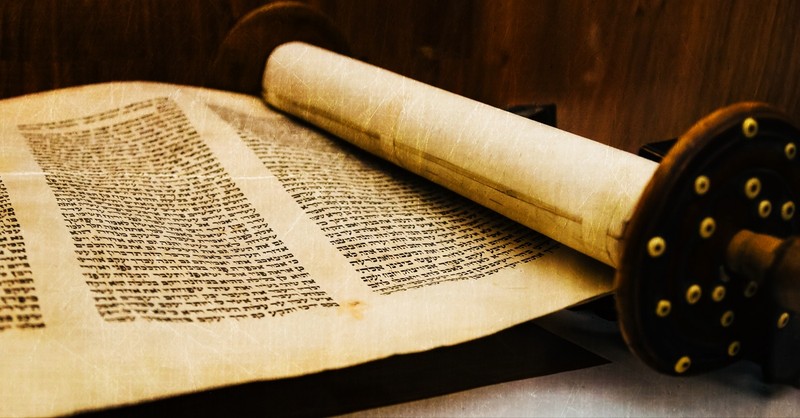
By Alexander Maune
THE etymology of the word Torah is hora-ah, which means “to teach.” The Torah comprises the written law and the oral law. The written law comprises the five books of Moses, the Prophets, and the Scriptures. The oral law comprises the Talmud, the Midrash, and the Kabbalah. According to tradition, both the written and the oral law were handed to Moses from God on Mount Sinai approximately 35 000 years ago. Moses received the Torah at Sinai and handed it to Joshua, Joshua to the elders, the elders to the prophets, and the prophets to the Men of the Great Assembly (Avot 1:1).
Rabbi Meir said: Whoever engages in Torah study for its own sake merits many things: furthermore (the creation of) the entire world is worthwhile for his sake alone. He is called, “Friend, Beloved.” He loves the omnipresent, he loves (His) creatures, he gladdens the omnipresent, he gladdens (His) creatures. (The Torah] clothes him in humility and fear (of God); it makes him fit to be righteous, devout, fair, and faithful. It moves him away from sin and draws him near to merit.
From him people enjoy counsel and wisdom, understanding and strength, as it is said: “Mine are counsel and wisdom, I am understanding, mine is strength.” (The Torah) gives him kingship and dominion and analytical judgment; the secrets of the Torah are revealed to him; he becomes a steadily strengthening fountain and like an unceasing river. He becomes modest, patient, and forgiving of insult to himself. (The Torah) makes him great and exalts him above all things.
Torah study for its own sake
Shelah defines learning for its own sake as study that is a means to the proper practice of the Torah`s laws. Rambam (Hilchos Talmud Torah 3:3-5) seems to concur with this definition: “Not one of the commandments outweighs the study of Torah; rather, the study of Torah excels all the other commandments, for study leads to practice, therefore study always takes precedence over practice… Man is first judged on his study, and only afterwards on the rest of his practice.
Likutei Amarim (Tanya Chapter 5) defines for its own sake as study with the intent to attach one’s soul to God through the comprehension of Torah, each person according to his own intellect.
Merits many things
- Chamisa under fire over US$120K donation
- Mavhunga puts DeMbare into Chibuku quarterfinals
- Pension funds bet on Cabora Bassa oilfields
- Councils defy govt fire tender directive
Keep Reading
According to Midrash Shmuel and Tiferes Yisrael, whoever engages in Torah study for its own sake merits many things. The Mishnah`s list includes instances of spiritual success, which are a natural result of the refining quality of Torah study, but in addition to those, R’ Meir promises that there will be many worldly benefits, such as long life, health, wealth, and honour. None of these would seem to flow naturally from study, but they are God’s additional blessing to those who study the Torah for its own sake.
The blessings that await such a person are too bountiful to be specified. The Talmud (Berachos 34b) teaches: “All the prophets prophesied regarding the exalted status of one who marries his daughter to a Torah scholar, does business with Torah scholars or allows them to benefit from his property. But regarding the exalted nature of the Talmid Chacham himself, ‘no eyes but God’s have seem it’” [see Isaiah 64:3] (R’ Chaim of Volozhin).
R’ Phinehas ben Yair used to say: Torah leads to strictness, strictness to zeal (in avoiding sin), zeal (in avoiding sin) to cleanliness, cleanliness to purity, purity to abstinence, abstinence to holiness, holiness to humility, humility to fear of sin, fear of sin to saintliness, saintliness to (possession of) the holy spirit, and the holy spirit to ability to revive the dead.
Chamber leading to chamber
R’ Chaim certainly agrees that Torah study results in a connection of one’s soul to God. “For when one engages (in the study of) Talmud and Codes and Tosafos and in his research and dialectical discourse concerning them, he is attached to the Holy One, for all comes from Sinai…The Holy One and Torah are a unity, and he who is attached to His Torah is attached to Him. “… The main (purpose of) study is not merely to cleave to God, but to understand, through the Torah, the commandments and laws, and to know all of it, its principles and details thoroughly; and also, to attain the knowledge of the secrets of the wonders of His works and the contemplation of His glory…The more one learns, the more he wants to learn. By means of the light that he has already attained, he can see that there is yet more light, and can hope to attain that too.
“It may be compared to one who enters a room in the royal treasury, which is filled with all kinds of precious objects. There he sees a door leading to an inner chamber, and in it he finds yet another door to yet other inner chambers. The closer one comes to the chamber of the king himself, the more beautiful it is, compared to the chamber before it. Had he not entered the outermost chamber, he would know nothing of other, inner chambers.
“So it is with Torah: By means of the light one attains initially, he sees that there is yet greater light, and so on. Thus one desires to understand and attain more, until he has attained all the mysteries of the world and its fullness” (Ruach Chaim).
Ben Bag Bag says: Delve in it (the Torah) and (continue to) delve in it, for everything is in it; look deeply into it, grow old and gray over it; do not stir from it, for you can have no better portion than it.
For anything is in the Torah
Rabbi Elchanan Wasserman offered the following analogy: If someone’s friend tells him that his face is dirty and another friend tells him that it is sparkling clean, how can he know the truth? By looking into a mirror. Likewise, when one has doubts I life, whether spiritual or mundane he should use the Torah as his mirror, allowing him to gain a true and realistic perspective of his own situation.
Thus, whenever one is in doubt, the Tanna (Sage) counsels him to look deeply into Torah, for through it he will view all of life with clarity and objectivity.
The Vilna Gaon suggested that if someone is in doubt about any major decision, he should study the Torah until he feels sincerely that he is learning purely for the sake of Heaven.
Then he should think about his problem. Whatever he decides to do at such a time will be correct.
R’ Joshua ben Levi said: When a man is on a journey and has no company, let him occupy himself with study of Torah, for Scripture says: “They are to be companions of grace” (Prov. 1:9). When a man feels pain in his head, let him occupy himself with Torah, since the verse goes on to prescribe ‘for thy head’ (ibid.). When a man feels pain in his throat, let him occupy himself with Torah, for the verse likens Torah’s words to ‘a necklace about thy throat.” When he feels pain in his innards, let him occupy himself with Torah, for another verse says of Torah that “it shall be healing to thy navel” (Prov. 3:8). When he feels pain in his bones, let him occupy himself with Torah, since the verse goes on to describe Torah as “marrow for thy bones” (ibid.). When he feels pain in his entire body, let him occupy himself with Torah, since another verse speaks of it as “healing for his whole body” (Prov. 4:22).
It is said in the name of R` Judah bar IIai: Pause and consider how recent generations are not like the former generations. The former generations made the study of Torah their regular concern and their daily work their occasional concern, and they succeeded in the one and in the other. The recent generations have made their daily work their regular concern and their study of Torah their occasional concern, and they have succeeded neither in the one nor in the other.
R‘ Yose ben Kisma said: Once, as I was traveling on a road, a man met me and greeted me, and I returned his greeting. He asked: “Master, what place are you from?” I replied: “From a great city of sages and scribes.” He said: “Master, if you consent to live with us in our place, I will give you a thousand thousand gold denars, besides precious stones and pearls.” I replied: “H you were to give me all the silver and gold and precious stones and pearls in the world, I still would live nowhere except in a place of Torah. For thus it is written in the book of Psalms by David, king of Israel: ‘The Torah of Thy mouth is worth more to me than thousands of gold and silver’” (Ps. 119:72). More: in the hour of a man’s departure from the world, neither silver nor gold, neither precious stones nor pearls accompany him, but Torah and good deeds-only they, as is said, “When thou walkest, it shall lead thee; when thou liest down, it shall watch over thee; and when thou wakest, it shall talk with thee” (Prov. 6:22). “When thou walkest, it shall lead thee” — in this world: “when thou liest down, it shall watch over thee” — in the grave; “and when thou wakest, it shall talk with thee” in the world-to-come.
The greatest love
R’ Yitzchak Hutner once told a group of students, “The greatest public service a young man can do for a nation is to study Torah.” Torah is the lifeblood of the nation and Torah scholars are its heart. The more spiritual blood they pump to the rest of the nation the better the nation’s spiritual health. Thus the greatest expression of love the nation is deep, passionate, and committed study of Torah.
- Alexander Maune is a Talmudic scholar, researcher and consultant as well as a member of IoDZ











